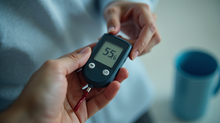Type 1 diabetes versus Type 2 diabetes: Know the differences.
- Maureen Sullivan
- Sep 24, 2023
- 2 min read
Updated: Jan 28, 2024

Type 1 Diabetes
Type 1 diabetes is believed to be the result of an autoimmune reaction (the body attacks itself by mistake). This reaction stops your body (your pancreas) from making insulin. Approximately 5-10% of the people who have diabetes have type 1.
Symptoms of type 1 diabetes often develop quickly. It’s usually diagnosed in children, teens, and young adults. If you have type 1 diabetes, you will need to take insulin every day to survive, as your pancreas is no longer functioning properly and making insulin. Type 1 diabetes cannot be "prevented" or "put into remission" with proper diet and exercise. Type 1 diabetes, however, can be managed successfully with early diagnosis and ongoing, lifelong treatment.
Type 2 Diabetes
In Type 2 diabetes, the body doesn’t utilize insulin well, either because it is not producing enough insulin, or the cells are not utilizing the insulin correctly. This results in elevated glucose elvels, referred to as hyperglycemia.
Approximately 90-95% of people with diabetes have Type 2. It may develop slowly over many years and is usually diagnosed in adults although the number of people (including children and teenagers and even young adults) is increasing. You may not notice any symptoms, so it’s important to get your blood sugar tested if you’re at risk.
Type 2 diabetes may be prevented (or at least delayed) with healthy lifestyle changes, such as:
Losing weight.
Eating healthy food.
Being active.
Proper sleep habits
Smoking cessation
Stress management
You will find numerous diabetes related diet guides online, such as this one from Dr. John Heary. Controlled low carb diets have been shown to favorably affect glucose levels, so it is worthwhile to speak with your medical provider or nutrition specialist to learn more on dietary guidelines for your specific health needs.
For more information on diabetes diagnosis and treatment options, check out the American Diabetes Association website at www.diabetes.org.



































Comments